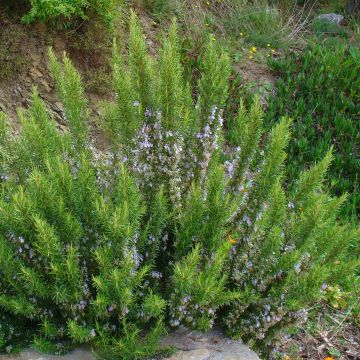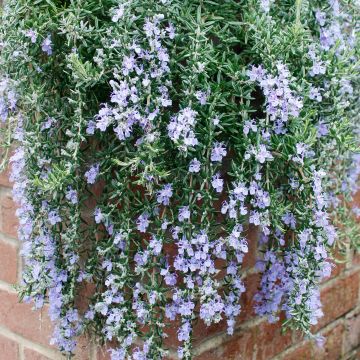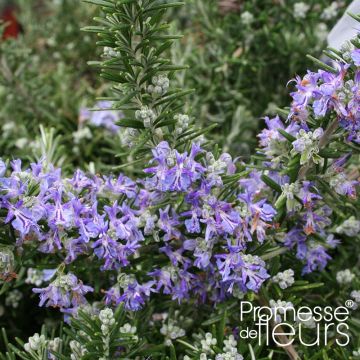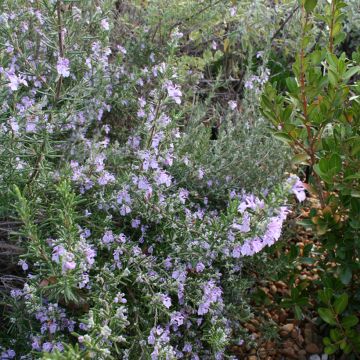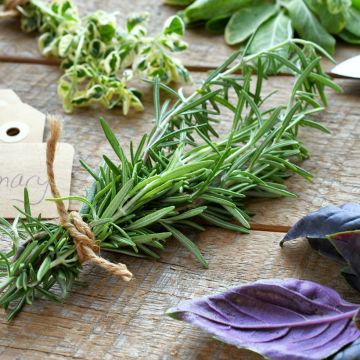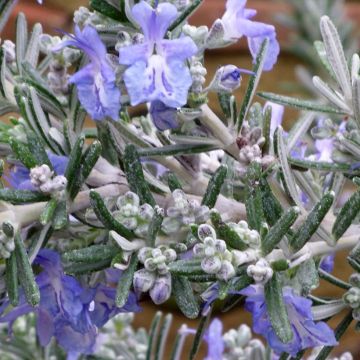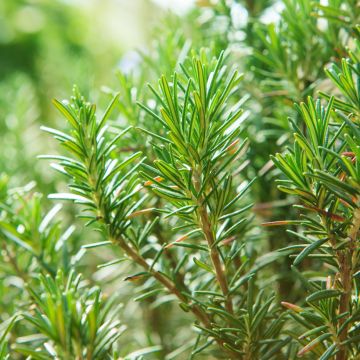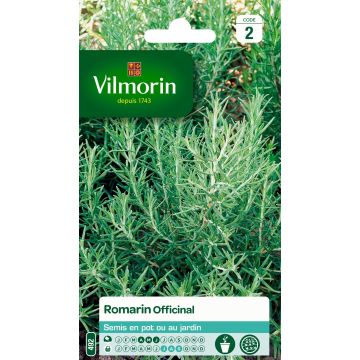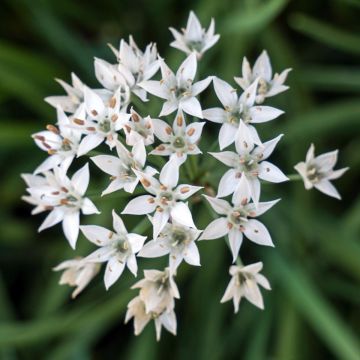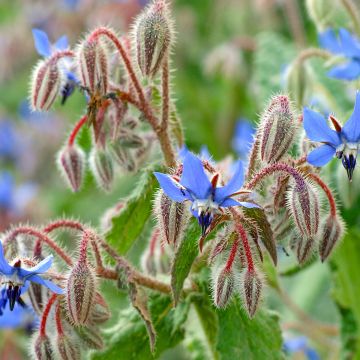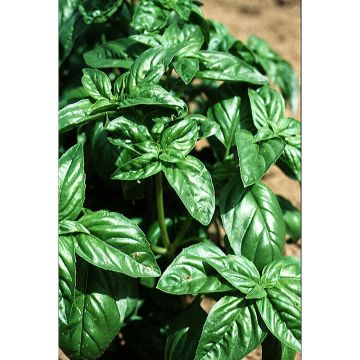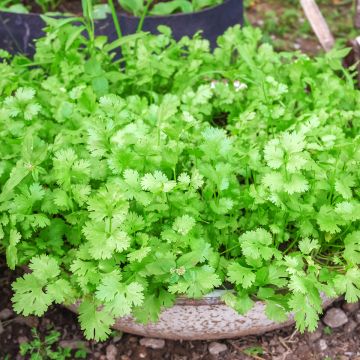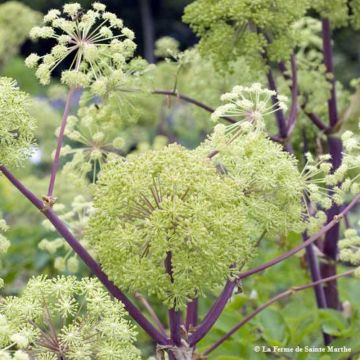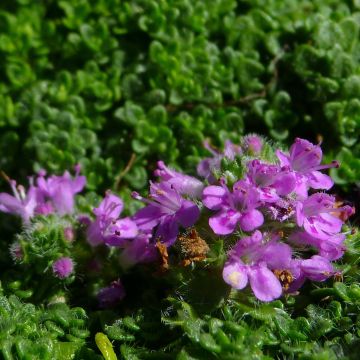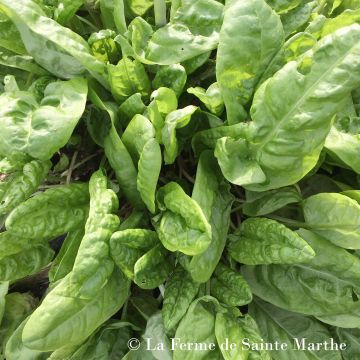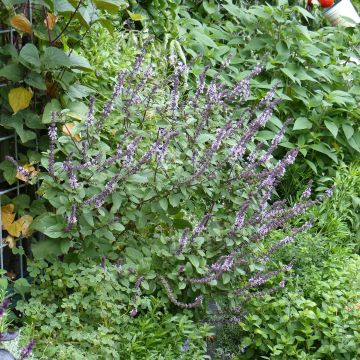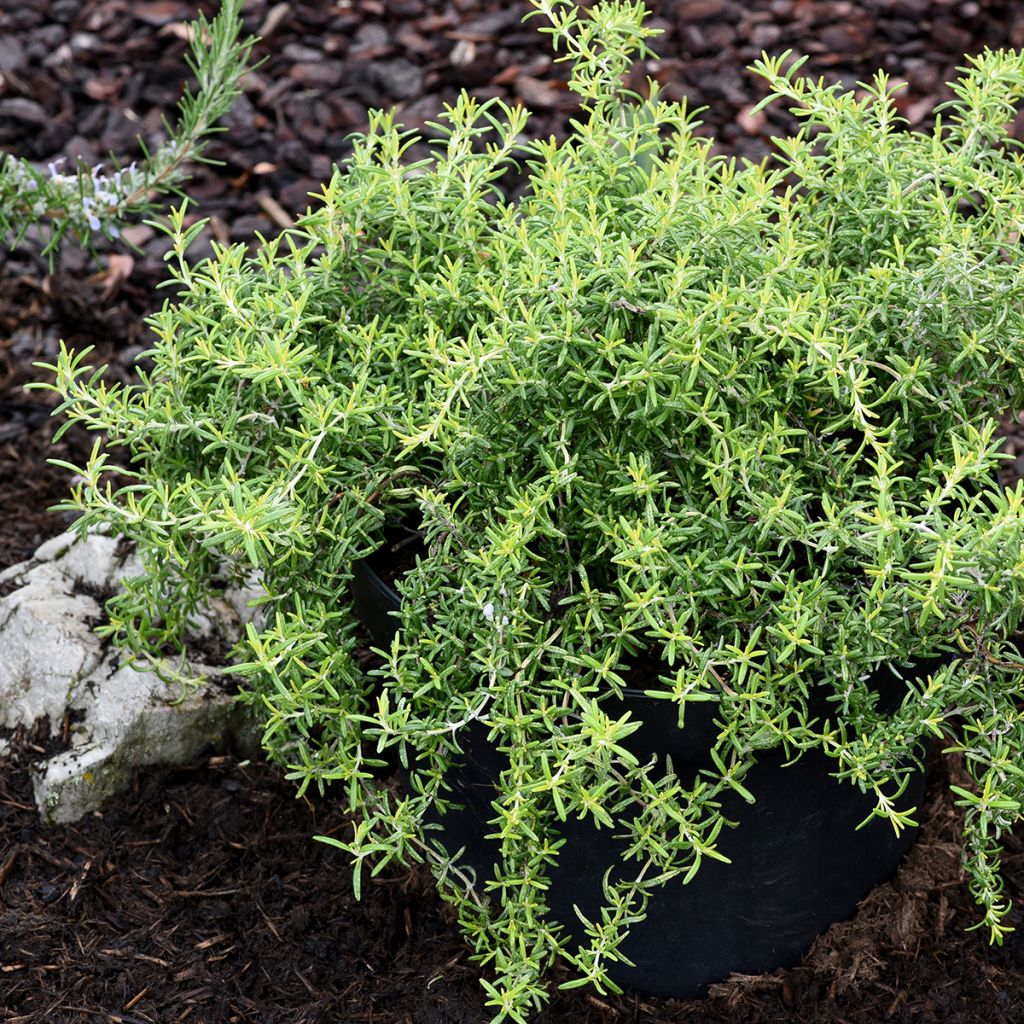

Salvia rosmarinus Capri - Rosemary
Salvia rosmarinus Capri - Rosemary
Salvia rosmarinus 'Capri'
Rosemary
A magnificent specimen that provided me with a very beautiful and long flowering throughout the entire autumn.
Le Coquelicot , 17/12/2025
Special offer!
Receive a €20 voucher for any order over €90 (excluding delivery costs, credit notes, and plastic-free options)!
1- Add your favorite plants to your cart.
2- Once you have reached €90, confirm your order (you can even choose the delivery date!).
3- As soon as your order is shipped, you will receive an email containing your voucher code, valid for 3 months (90 days).
Your voucher is unique and can only be used once, for any order with a minimum value of €20, excluding delivery costs.
Can be combined with other current offers, non-divisible and non-refundable.
Home or relay delivery (depending on size and destination)
Schedule delivery date,
and select date in basket
This plant carries a 24 months recovery warranty
More information
We guarantee the quality of our plants for a full growing cycle, and will replace at our expense any plant that fails to recover under normal climatic and planting conditions.

Would this plant suit my garden?
Set up your Plantfit profile →
Description
Salvia rosmarinus 'Capri' is a small, compact rosemary with an intensely spreading, almost weeping habit. With its fragrant evergreen foliage and languid growth, it looks wonderful in a pot, between rocks in a rockery, or on top of a wall. In spring, it is covered with small lavender-blue flowers that attract bees, with abundant flowering often continuing in late summer and autumn. It retains excellent resistance to summer drought from its Mediterranean origins. Finally, unlike upright varieties, it ages well, regenerating itself spontaneously by layering.
Rosemary officinalis, recently renamed Salvia rosmarinus, is a small shrub native to the Mediterranean basin belonging to the Lamiaceae family. This family includes many medicinal and aromatic plants. In addition to its many food and therapeutic properties, this plant has long been believed to purify the air and ward off evil spirits. It was burned as incense around the Mediterranean. Depending on the region and its natural environment, it has locally differentiated, showing quite varied characteristics of hardiness, habit, and flowering.
Salvia rosmarinus 'Capri' is part of a group called Prostratus, which includes trailing varieties. This selection has reduced growth and naturally trailing vegetation, almost constrained. This undershrub will reach 10 to 30 cm tall, depending on growing conditions (it will be smaller if exposed to strong and repeated winds), and spread up to a maximum of 40 to 50 cm. Its growth is slow in poor and dry soil and slightly faster in rich and moist soil, where its lifespan will be shorter and its habit less dense. In the north, it usually flowers from May to June and can bloom again until late summer, in waves. Further south, it flowers from February-March to early May. Its flowering resumes in October, after a dry summer. It is actually induced by the return of rain after a period of severe drought. 'Capri' bears tiny flowers that are clustered in spikes along the young branches. The evergreen foliage consists of small, glossy, narrow, whitish-green leaves. They are unique in that they are rolled up, giving them a linear appearance. This characteristic is an adaptation to drought. The 'Capri' variety has particularly aromatic foliage, with a scent of rosemary and a hint of lavender. It is slightly less hardy than the type, down to -12°C in well-drained soil.
Compact, dense, full of flowers for a long period, fragrant in the air and in the kitchen, Rosemary officinalis and its variations are great for quickly establishing the landscape of a dry garden, a rockery, or simply an arid area where the soil is thin. It can be associated with other ground cover plants such as the Winecup Mallow with magenta flowers (Callirhoe involucrata), the 'Compactum' Alyssum, Cistus skanbergii, or even Teucrium chamaedrys, for example. It is an excellent source of nectar for bees, at a time of year when flowers are still scarce.
Report an error about the product description
Plant habit
Flowering
Foliage
Botanical data
Salvia
rosmarinus
'Capri'
Lamiaceae
Rosemary
Salvia rosmarinus ( Prostrata Group ) 'Capri'
Mediterranean
Other Rosemary
View all →Planting and care
The 'Capri' rosemary is a perfect plant for poor and dry soil, even rocky and limestone, perfectly drained in winter. The more drained the soil is, the better the plant can withstand winter. The richer the soil, the faster the rosemary grows, and the worse it ages and thins out at the base. The 'Capri' rosemary is a naturally compact and sturdy variety that ages better, without thinning out at the base, especially since it tends to naturally layer itself at ground level. This undershrub will appreciate a sunny and fairly protected location. It is hardy and can withstand -12°C but may suffer from a harsh winter in the north. It is advisable not to water it during the summer, as it is sensitive to Phytophthora, a fungus that attacks the plant's collar in hot and humid conditions. You can lightly prune it after flowering to give shape to your rosemary and maintain a compact and branching habit.
Planting period
Intended location
Care
-
, onOrder confirmed
Reply from on Promesse de fleurs
Similar products
Haven't found what you were looking for?
Hardiness is the lowest winter temperature a plant can endure without suffering serious damage or even dying. However, hardiness is affected by location (a sheltered area, such as a patio), protection (winter cover) and soil type (hardiness is improved by well-drained soil).

Photo Sharing Terms & Conditions
In order to encourage gardeners to interact and share their experiences, Promesse de fleurs offers various media enabling content to be uploaded onto its Site - in particular via the ‘Photo sharing’ module.
The User agrees to refrain from:
- Posting any content that is illegal, prejudicial, insulting, racist, inciteful to hatred, revisionist, contrary to public decency, that infringes on privacy or on the privacy rights of third parties, in particular the publicity rights of persons and goods, intellectual property rights, or the right to privacy.
- Submitting content on behalf of a third party;
- Impersonate the identity of a third party and/or publish any personal information about a third party;
In general, the User undertakes to refrain from any unethical behaviour.
All Content (in particular text, comments, files, images, photos, videos, creative works, etc.), which may be subject to property or intellectual property rights, image or other private rights, shall remain the property of the User, subject to the limited rights granted by the terms of the licence granted by Promesse de fleurs as stated below. Users are at liberty to publish or not to publish such Content on the Site, notably via the ‘Photo Sharing’ facility, and accept that this Content shall be made public and freely accessible, notably on the Internet.
Users further acknowledge, undertake to have ,and guarantee that they hold all necessary rights and permissions to publish such material on the Site, in particular with regard to the legislation in force pertaining to any privacy, property, intellectual property, image, or contractual rights, or rights of any other nature. By publishing such Content on the Site, Users acknowledge accepting full liability as publishers of the Content within the meaning of the law, and grant Promesse de fleurs, free of charge, an inclusive, worldwide licence for the said Content for the entire duration of its publication, including all reproduction, representation, up/downloading, displaying, performing, transmission, and storage rights.
Users also grant permission for their name to be linked to the Content and accept that this link may not always be made available.
By engaging in posting material, Users consent to their Content becoming automatically accessible on the Internet, in particular on other sites and/or blogs and/or web pages of the Promesse de fleurs site, including in particular social pages and the Promesse de fleurs catalogue.
Users may secure the removal of entrusted content free of charge by issuing a simple request via our contact form.
The flowering period indicated on our website applies to countries and regions located in USDA zone 8 (France, the United Kingdom, Ireland, the Netherlands, etc.)
It will vary according to where you live:
- In zones 9 to 10 (Italy, Spain, Greece, etc.), flowering will occur about 2 to 4 weeks earlier.
- In zones 6 to 7 (Germany, Poland, Slovenia, and lower mountainous regions), flowering will be delayed by 2 to 3 weeks.
- In zone 5 (Central Europe, Scandinavia), blooming will be delayed by 3 to 5 weeks.
In temperate climates, pruning of spring-flowering shrubs (forsythia, spireas, etc.) should be done just after flowering.
Pruning of summer-flowering shrubs (Indian Lilac, Perovskia, etc.) can be done in winter or spring.
In cold regions as well as with frost-sensitive plants, avoid pruning too early when severe frosts may still occur.
The planting period indicated on our website applies to countries and regions located in USDA zone 8 (France, United Kingdom, Ireland, Netherlands).
It will vary according to where you live:
- In Mediterranean zones (Marseille, Madrid, Milan, etc.), autumn and winter are the best planting periods.
- In continental zones (Strasbourg, Munich, Vienna, etc.), delay planting by 2 to 3 weeks in spring and bring it forward by 2 to 4 weeks in autumn.
- In mountainous regions (the Alps, Pyrenees, Carpathians, etc.), it is best to plant in late spring (May-June) or late summer (August-September).
The harvesting period indicated on our website applies to countries and regions in USDA zone 8 (France, England, Ireland, the Netherlands).
In colder areas (Scandinavia, Poland, Austria...) fruit and vegetable harvests are likely to be delayed by 3-4 weeks.
In warmer areas (Italy, Spain, Greece, etc.), harvesting will probably take place earlier, depending on weather conditions.
The sowing periods indicated on our website apply to countries and regions within USDA Zone 8 (France, UK, Ireland, Netherlands).
In colder areas (Scandinavia, Poland, Austria...), delay any outdoor sowing by 3-4 weeks, or sow under glass.
In warmer climes (Italy, Spain, Greece, etc.), bring outdoor sowing forward by a few weeks.






























